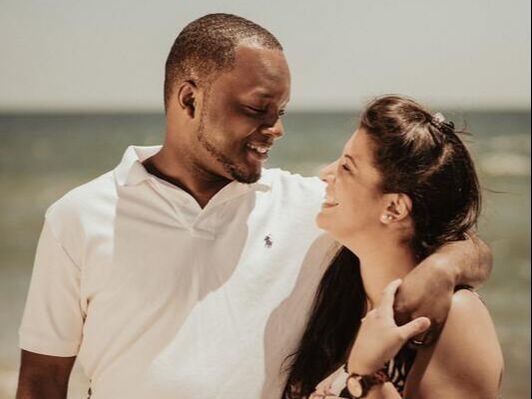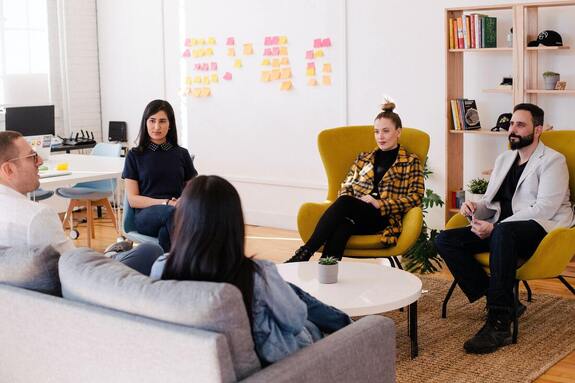|
Are you a team even when you are fighting? This is the tenth episode of a series on Getting Ready for Marriage. In this podcast episode, Elizabeth Polinsky discusses relationship communication skills.
IN THIS PODCAST
Why I am doing this series on Getting Ready for Marriage?
I had a wedding photographer reach out to me asking me to provide some tips for couples getting married. I created an entire checklist for her with the things I think are foundational for getting ready for marriage and starting off your marriage on the right foot. If you want the checklist, you can download it here!
When you don't use relationship communication skills...
As I was prepping for this episode, I was thinking about how there are these times with my husband where I can really zone out and get lost in my own thoughts. I'm sure plenty of you can relate; this is such a human thing to do! Most people will zone out and get lost in their thoughts at some point. But there are also times where this happens where my husband is directly talking to me and I'll even respond to him and say "yea", but then I actually don't have a clue what he just told me. I don't remember what he said. In those moments, and this happened kind of recently, I have taken the route of just trying to be very honest that I zoned out. Then I ask him if he can repeat what he just said. It's not always fun. I don't feel super awesome about myself in those moments. That's not really a fun thing to admit and tell your partner, but I'm really glad that I do because it allows us to come back to that conversation and repair. There are times where my husband does this also. There are times where I have to ask him to refocus his attention or ask him if he did hear what I said. Again this is pretty normal for people to do at times and those are time points where it's possible for a fight to start. I think that is a moment in pretty much every couple of relationship where a fight could start because one partner could say, "why aren't you paying attention to me? Put put your phone down. I can't believe you weren't paying attention. Why did you say yes to my question when you didn't even hear me?!" See? That is a moment where there could be a fight. So what is it that you do? What communication skills should you use in moments where you could have a fight? That is what we're going to talk about today.
So in getting ready for marriage, or if you're newly married, one of the main things that will be helpful getting started out is to learn communication skills. These are skills that you can learn that you can practice over and over and over again. It may feel awkward, especially at the beginning while you're learning them, but then as you do it, it becomes more natural. The skills that I think are pretty important for learning at the very beginning would be active listening skills, empathy, negotiating, and conflict resolution. So let's talk about each of those four for real fast. So often I see issues with communication and couples happen because they didn't get clarity about what was meant in the message to begin with." -- Elizabeth Polinsky Active listening skills for your relationship.
I might disagree with a rationale behind something, but I cannot disagree with a feeling because the feeling is the fact." -- Elizabeth Polinsky Finding empathy and expressing it in relationships.
Another set of skills that I think is really important to learn at the beginning of a marriage is finding your empathy! We all need to know that our partners care about how we feel and care about what we're going through and our life experiences. Some people are naturally stronger at this than others.
When people get stuck in negotiation, it's because there is a deeper conversation going on." -- Elizabeth Polinsky Negotiations skills in relationships.
The third set of skills is around negotiating. We've covered this a little bit in this podcast already; you can go back to episode 26 which is on decision making and relationships. That is a big component of negotiating.
Conflict resolution in relationships.
The last skill is conflict resolution. John and Julie Gottman, they're both doctors and I think they're psychologists if I'm remembering correctly, they are over at the Gottman Institute. They do a ton of research on couples. One of the things that they found in their research was that the repair is always the most important part. You can't really avoid conflict; you can resolve conflict by using active listening skills, empathizing with each other, and negotiating. All these skills help to resolve conflict, but you can't avoid conflict. When you do sweep it under the rug, it tends to keep coming back up. So you can use all the skills that we've talked about so far in this episode towards conflict resolution, but it's that repair that is important. It's the making sure you and I are okay; that there is a resolution where we're on the same team and on the same page again. That is the most important part for the sustainability of couple relationships.
Ways to learn relationship communication skills.
So if you are engaged, about to get married, or you're newly married--and you want to figure out how to learn a lot of these relationship communication skills--here are ways that you can do that.
Action Item for Communicate & Connect Episode 30: Relationship Communication Skills
If you were to do one thing ,or take away one thing from today, what I would want you to go home and try is to try to start reflecting back what you hear your partner saying. Use that as a way to start developing your active listening and your empathy skills. So it's not it's not a huge task here, it's just repeat back. "Okay, thank you for sharing. I heard you say this, I heard you say xyz. Did I understand that correctly?" That's all you gotta do. So if you do this challenge, please post about it or send me a message or tag me on social media. I want to know how it goes.
Alright, have a great day. I hope you enjoyed today's episode. If so please take a second to go rate review and subscribe so you get all of our future episodes. You can also sign up for my free 10-week relationship email course. This email course is really designed for people who are maybe having trouble with communication or connection in their relationship and helping them develop some quick wins right away. Sign up for Liz's FREE Relationship Email Course!!
Liz's Useful Links:
Podcast Sponsor: The Adventure Challenge is a mysterious scratch off book of 50 unique and creative adventures. You don't know what you're doing until you scratch it off! The goal is to inspire connection in your relationships through adventures and fun. There are 3 editions--one for couples, one for families, and one for friends. If you are feeling in a rut in your relationships and in need of adventure, this is a perfect book to get out outside of your normal routine and into fun experiences aimed at bringing you closer together. To get 15% off the adventure challenge, go to https://www.theadventurechallenge.com/discount/CONNECT15 or enter “CONNECT15”. Thanks for Listening! 
Elizabeth Polinsky is a marriage and couple therapist specializing in working with military members, veterans, and their families. At the time of this recording, Liz travels between offices in Virginia Beach, Virginia, and Fallon, Nevada. She provides online counseling services throughout Virginia, Nevada, South Carolina, and Arkansas.
DISCLAIMER: My podcast, blogs, videos, newsletters, and products are general information for educational purposes only; they are not psychotherapy and not a replacement for therapy. The information provided does not constitute the formation of a therapist-patient relationship. You should consult your doctor or mental health provider regarding advice and support for your health and well being. I cannot answer questions regarding your specific situation. If you are experiencing a medical or mental health emergency, you should call 911, report to your local ER, or call the National Crisis Hotline at 1-800-273-8255. Nothing I post should be considered professional advice. The information in my podcast, blogs, videos, newsletters, and products are not intended to be therapy or psychological advice. The podcast, blogs, videos, newsletters, and products are not a request for a testimonial, rating, or endorsement from clients regarding counseling. If you are a current or former client/ patient, please remember that your comments may jeopardize your confidentiality. I will not “friend” or “follow” current or past clients to honor ethical boundaries and privacy; nor will I respond to comments or messages through social media or other platforms from current or past clients. Current and past client’s should only contact me through the professional contact information provided on the website. Lastly, accounts may be managed by multiple people. Therefore, comments and messages are monitored by staff and are not confidential.
0 Comments
Your comment will be posted after it is approved.
Leave a Reply. |
The Communicate & Connect Podcast
In Communicate & Connect For Military Relationships, I provide educational tips for relationships, communication, and navigating military family life. AuthorHey, I'm Dr. Elizabeth "Liz" Polinsky and I am a marriage counselor in Virginia Beach. I provide online counseling across the states of VA, MD, NC, SC, AR, and NV. Categories
All
|
Telephone(757) 354-1157
|
liz@communicateandconnectpodcast.com
|




 RSS Feed
RSS Feed
